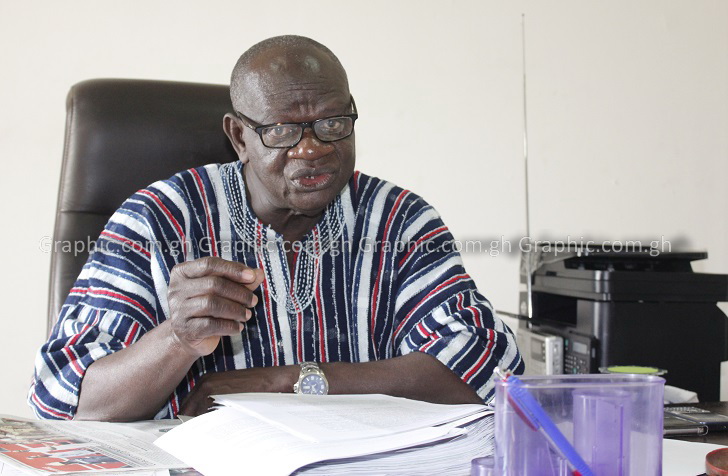
Admin-General collaborates with others to take inventory of government assets
The Administrator-General of the Presidential Estates Unit (PEU) has written to Regional Coordinating Councils (RCC) to assign budget officers the additional responsibility of representing him at the regions.
Advertisement
By representing the Administrator-General, the budget officers will be taking an inventory of all purchases made by the government and make them available to the PEU.
That, according to the Administrator General, Mr David Yaro, will help the unit to continuously fulfil its mandate of taking an inventory of the government’s assets as prescribed in Section 9 of the Presidential (Transition) Act 2012 (Act 845).
The unit has also taken notice of the government’s directive for ministries not to purchase any new cars and has, accordingly, requested the Chief of Staff to furnish it with information about any purchases in circumstances where the need arises.
In an interview in Accra yesterday, Mr Yaro said assigning budget officers in the region to take an inventory of government purchases would help the unit greatly in its work.
Other administrative decisions taken, he said, included a request to the Driver and Vehicle Licensing Authority (DVLA) to furnish the PEU with information on government vehicles on quarterly basis.
Mr Yaro said decisions to co-opt regional budget officers and to work with other agencies in keeping track of the government’s assets were important to keep the office working on its mandate even after the transition period.
Successes and challenges
He said a review of the work of the Administrator-General and the Cabinet Secretariat during the transition in May this year, showed that the unit achieved some successes.
The review, which was undertaken by an independent consultant at the request of the government was shared at a workshop organised by the Cabinet Secretariat, Office of the Head of Civil Service (OHSC) and his office, with other government agencies.
It was supported by the Department for International Development Ghana,(DFID) through Deliver, a non-governmental organisation.
There were, however, several gaps which needed to be looked at to strengthen and make the country’s transitions better.
Among the several challenges identified were the last-minute signing of contracts, the issue of missing government vehicles and the lack of a comprehensive inventory of government assets.
Legislative gaps
Mr Yaro said other challenges identified were with Act 845.
For instance, the section 8 (5) and (6) of the Act asked the PEU to undertake the procurement of government assets.
That according to him was in conflict with other laws that gave the responsibility to municipalities, district assemblies and other public agencies to do their own procurement.
Mr Yaro was of the view that it would be better for the PEU to have the responsibility over the estates of the president, the vice president and ministers.
He expressed the hope that the legislative instrument that would define clearly the Act would take these into consideration.




